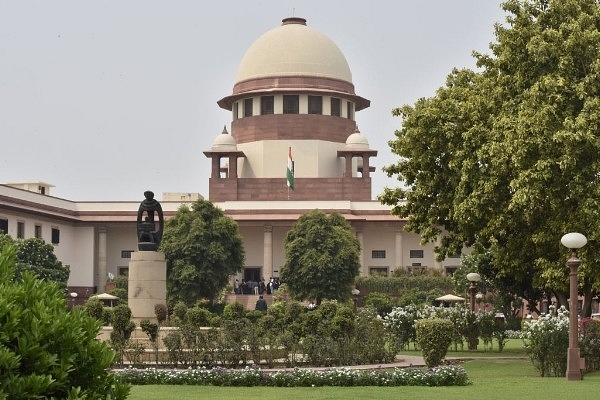
BCCI, Jaypee Verdicts Suggest SC May Be Moving Away From Excess Activism
The Supreme Court is now sending back cases to the right fora after needlessly trying to make the law using its special powers under Article 142.
This is a welcome change on the part of the Supreme Court, which already has a huge backlog of cases to resolve.
The Supreme Court under Chief Justice (CJI) Dipak Misra, which has been under siege ever since four senior judges addressed a press conference in January this year making allegations of bench-fixing, is showing welcome signs of pulling itself back from excess activism. While it is too early to draw a firm conclusion on this, in at least two recent cases it is making amends. It is sending back cases to the right fora after needlessly trying to make the law using its special powers under Article 142.
Article 142 allows the court to make the law instead of just interpreting it in order to render “complete justice”.
On Thursday (9 August), a three-judge bench headed by the CJI diluted the recommendations made by the Justice Lodha panel on restructuring the Board of Control for Cricket in India (BCCI), a private body set up under the Tamil Nadu Societies Registration Act 1976.
While the bench could not obviously entirely overturn the orders of previous Supreme Court judges and benches, this time it allowed a few changes. Among them, it has junked the one-state-one-vote rule proposed by Lodha and allowed historically powerful clubs like the Mumbai, Maharashtra, Vidarbha, Baroda, Saurashtra, Gujarat, Services, and Railways to have their old votes back; it has now given BCCI office-bearers a continuous tenure of six years (instead of three, as proposed by Lodha) before a mandatory three-year cooling off period; and it has replaced the Lodha-suggested three-member team selection panel with a five-member one. Ministers, bureaucrats, members of Parliament and members of legislative assembly, and those facing criminal charges against them are barred from becoming office-bearers in any cricket association or the BCCI.
While one wonders why the Supreme Court had to dictate even some of these terms to the BCCI, which will now have to file a new constitution with the Tamil Nadu authorities within four weeks, the positive message coming from these changes to the Lodha recommendations is that the courts should meddle as little as possible in how societies have been historically run.
Another instance where the Supreme Court pulled back from making the law concerns Jaypee Infratech – also on Thursday. After intervening in a petition filed by home buyers allegedly gypped by Jaypee, apparently because the previous version of the Insolvency and Bankruptcy Code (IBC) did not mention the rights of home buyers in insolvency proceedings, the bench tossed the Jaypee case back to the National Company Law Tribunal for a resolution. In any event, an amendment to the IBC allows home buyers to be on par with financial creditors.
The court also asked the Reserve Bank to initiate similar resolution proceedings against Jaiprakash Associates, the parent company of Jaypee Infratech, since an audit had shown diversion of funds from the home-builder to the parent of Rs 10,000 crore.
These are welcome changes by the Supreme Court, and one hopes that it abjures future efforts by vested interests and public interest litigants to bring the top court into every battle. In the past, the top court has also played to the gallery by allowing itself to be dragged into populist cases. One egregious case involved the special tax on sports utility vehicles entering Delhi, when taxation is simply not within the ambit of the courts.
The Supreme Court already has a huge backlog of cases to resolve. Trying to insert itself in battles between cricket administrators and other such warring elements was unnecessary.